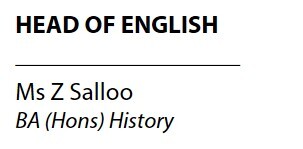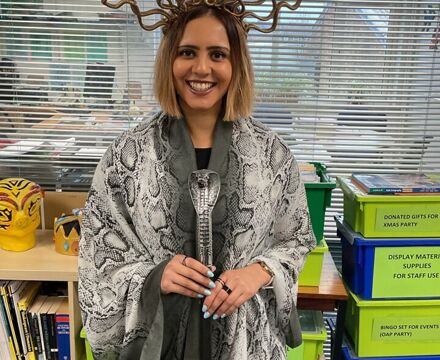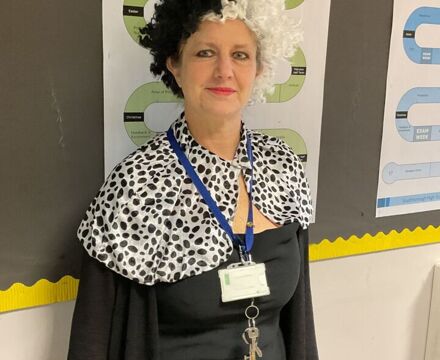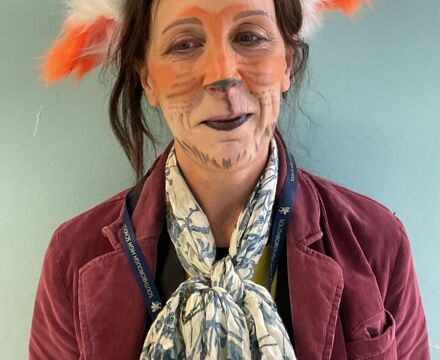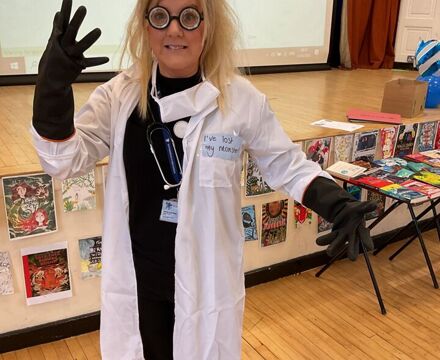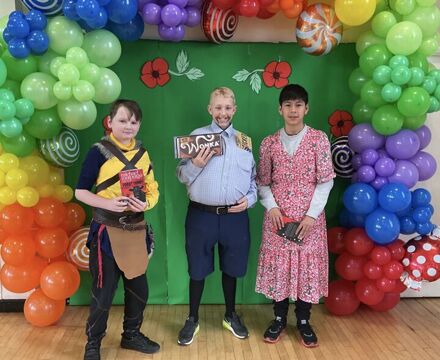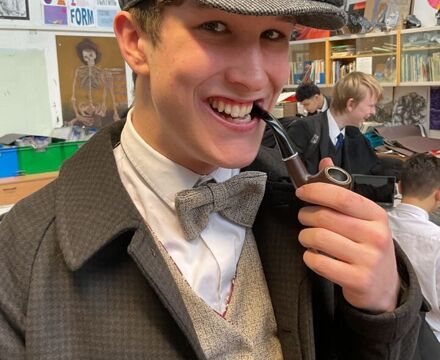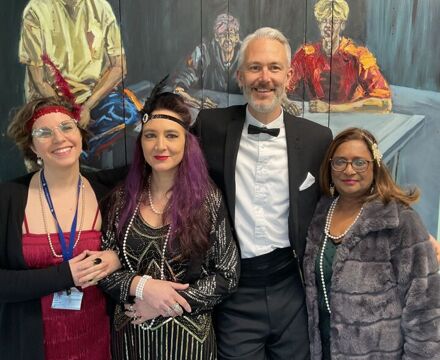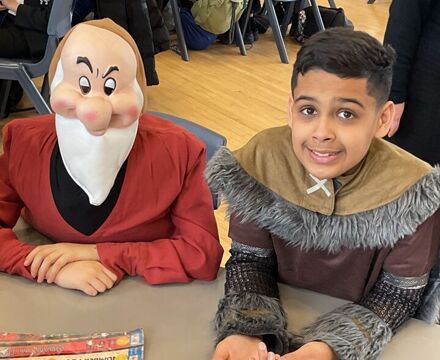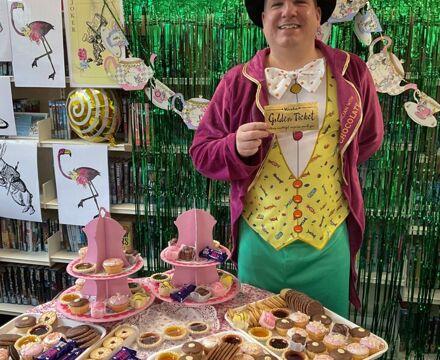
- Home
- Curriculum
- Subject Information
- English
English
Back
"Literature adds to reality, it does not simply describe it. It enriches the necessary competencies that daily life requires and provides; and in this respect, it irrigates the deserts that our lives have already become."
English is a thriving department within the school
We are passionate and unashamedly ambitious in our aspirations for our students: we want to immerse our students in the wonder of quality texts to instil a love of reading, producing and performing; to encourage a passion for discovery and the confidence to explore their imagination; and to equip them with the necessary knowledge, skills and understanding to become lifelong learners, linguists and critics.
Our KS3 curriculum is broad and balanced, centred around high-quality age-appropriate texts of different forms and genres through a thematic enquiry model which allows them to accumulate knowledge, cultural capital and critical thinking. The practices of wider reading and independent study are established and maintained in KS4 and A-Level, giving students a sense of ownership and pride in their literary heritage. Results in recent public examinations have been very pleasing at both GCSE and A Level with many students choosing to study English at university: this is testament to the deep love for learning and the subject which we cultivate here at Southborough.
We promote literacy, creativity and a love of English through enrichment beyond the classroom and curriculum across all key stages, such as residential trips to the Forest of Dean, Stratford-Upon-Avon and Haworth. Events such as National Poetry Day, World Book Day and Shakespeare Week have become embedded in our whole school culture, and we offer students the opportunity to enter national competitions and lunchtime clubs such as BBC Young Reporters. We also work very closely with the School Library, and all KS3 classes have regular library lessons to encourage wider reading and research skills. Sixth Form students also work with cultural institutions like The British Library and The National Poetry Library along with visiting speakers to develop their wider appreciation of the literary canon.
Boys and English
All classes, in all years, have opportunities to study poetry (pre and post 1900), drama (Shakespeare and post-1900), prose (pre and post 1900), media and non-fiction. They are taught and develop skills in the three key components: reading, writing and spoken language (speaking and listening). These skills are built upon and developed from Y7 to Y13.There are key schemes of work for each year group.
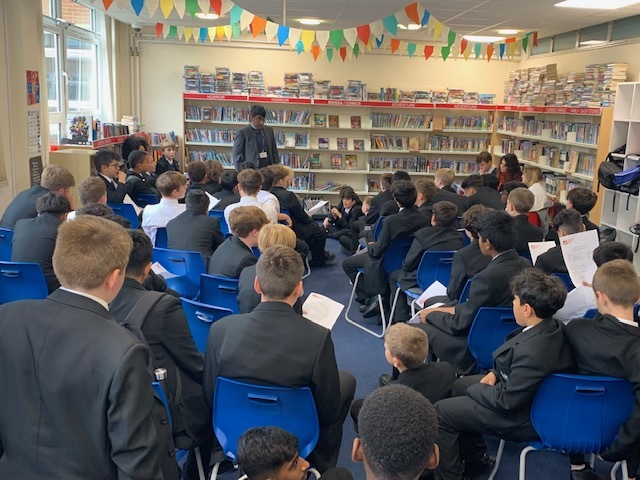 National Poetry Day 2023
National Poetry Day 2023
There is a focus on ‘depth over breadth’, with students fully understanding the relevance of the skills they develop, appreciating where they can be used and for what effect. Our students are given adequate time to apply the skills they have learnt, with opportunity for extended writing, reading analysis and spoken language presentations.
Understanding the Importance of Exam Success
The English Department seeks to fully embed the skills required for national external examinations in Key Stage 4 and 5 from Y7. This is done through a combination of textual study, discussion, e-learning, conferences and workshops. The aim of this is to ensure our students, at all abilities, are confident of how to attain and achieve. Ultimately, we are keen to transmit our enthusiasm for the subject to all who study it, regardless of age or ability!
Curriculum Maps
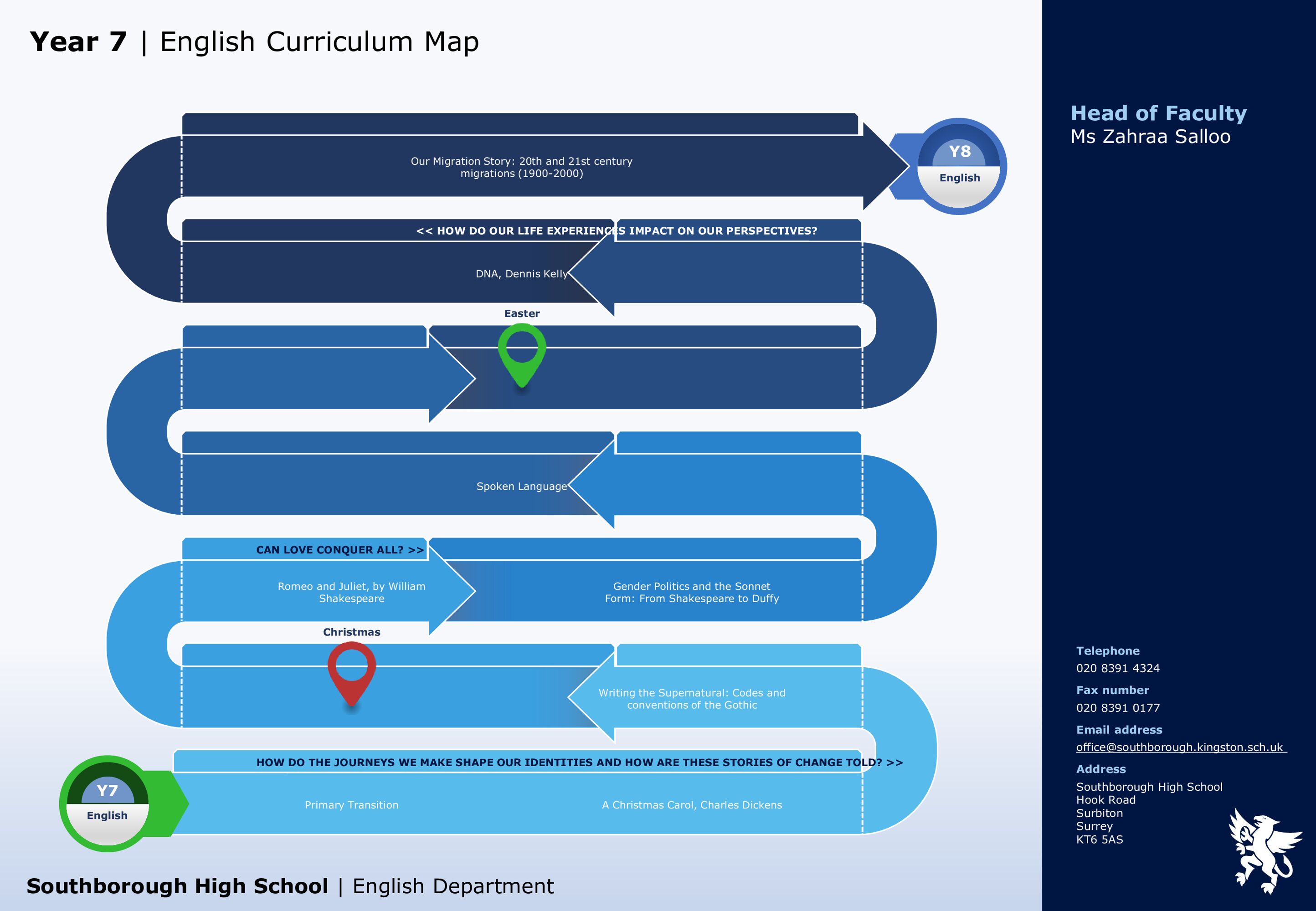
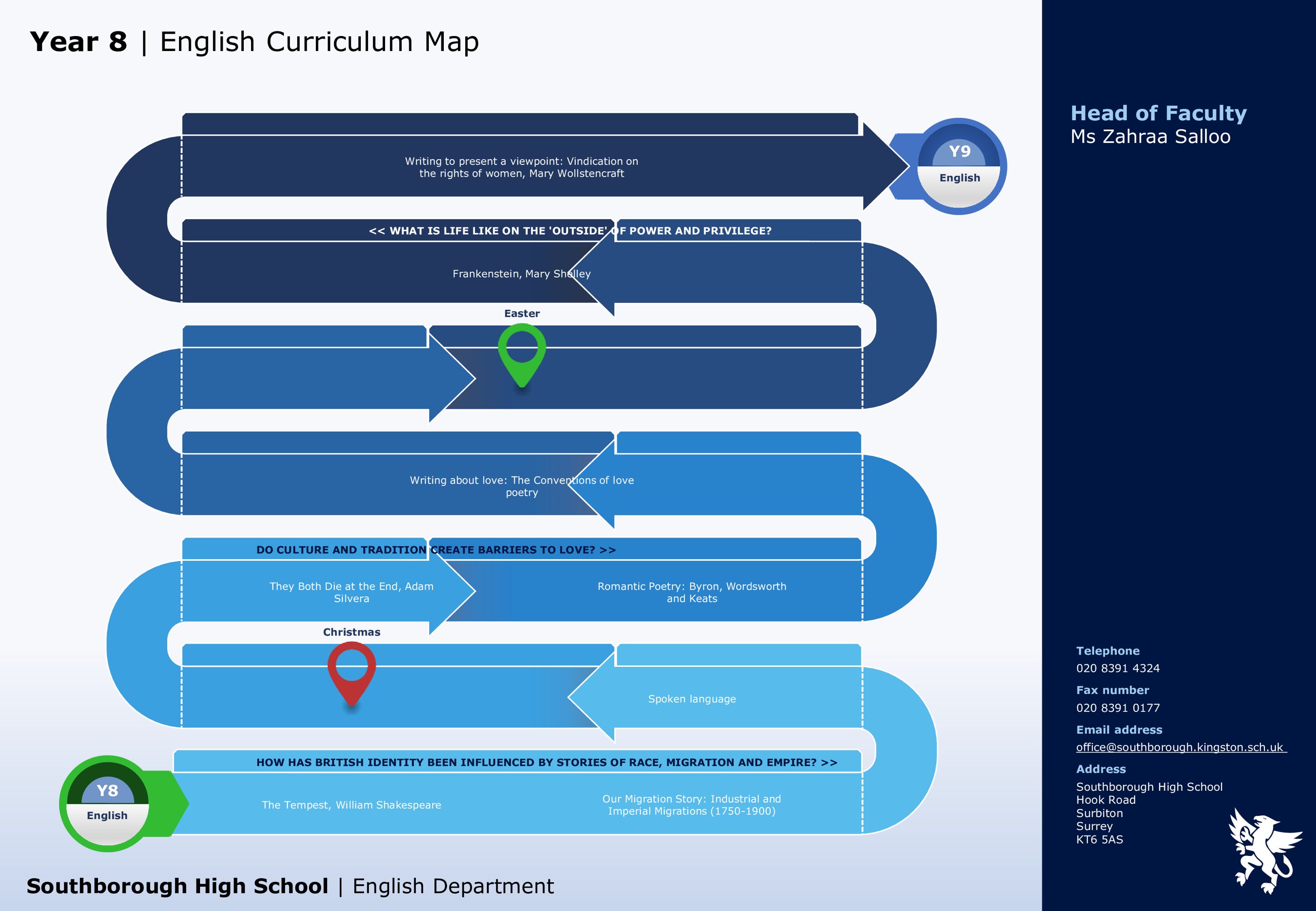
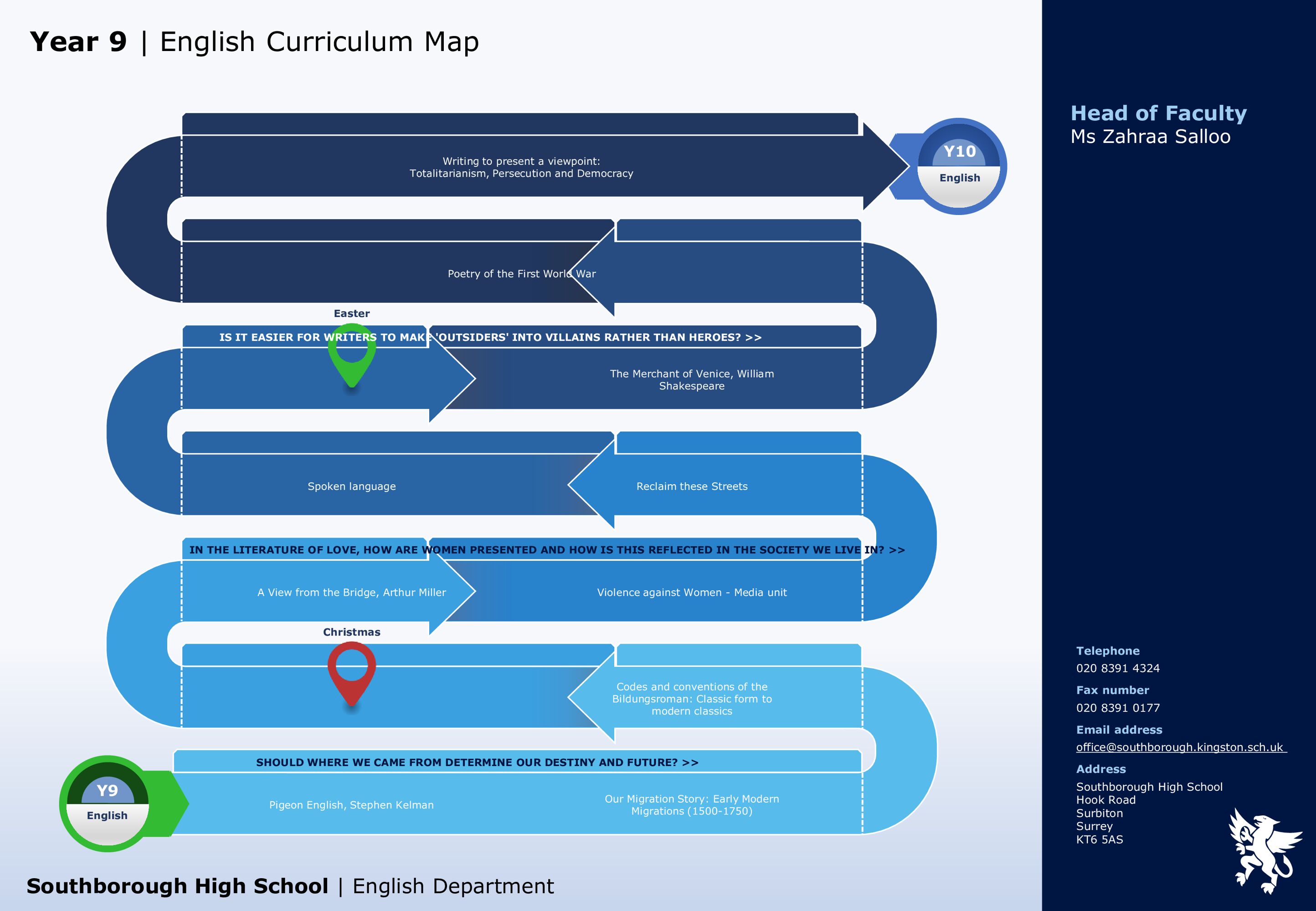
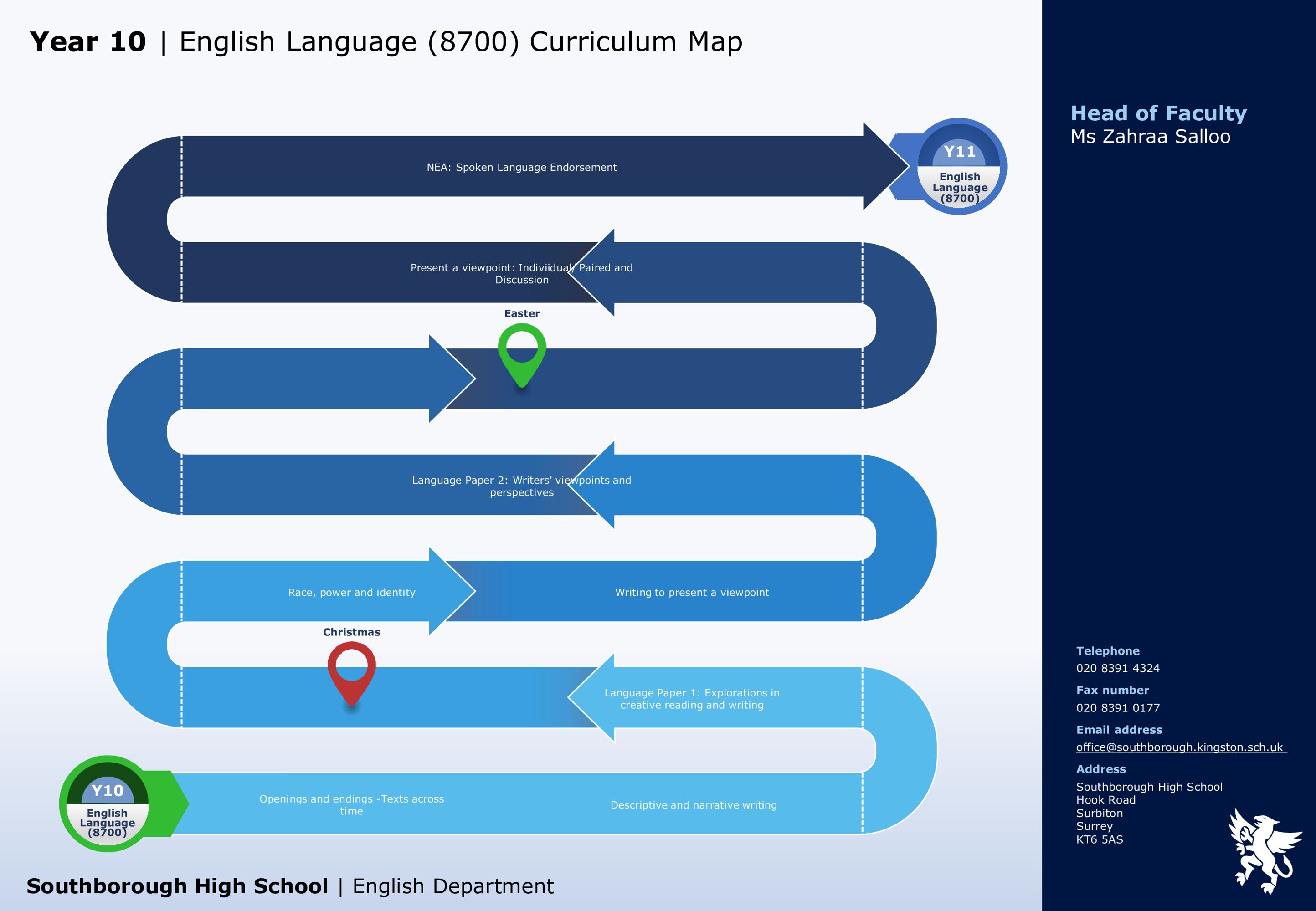
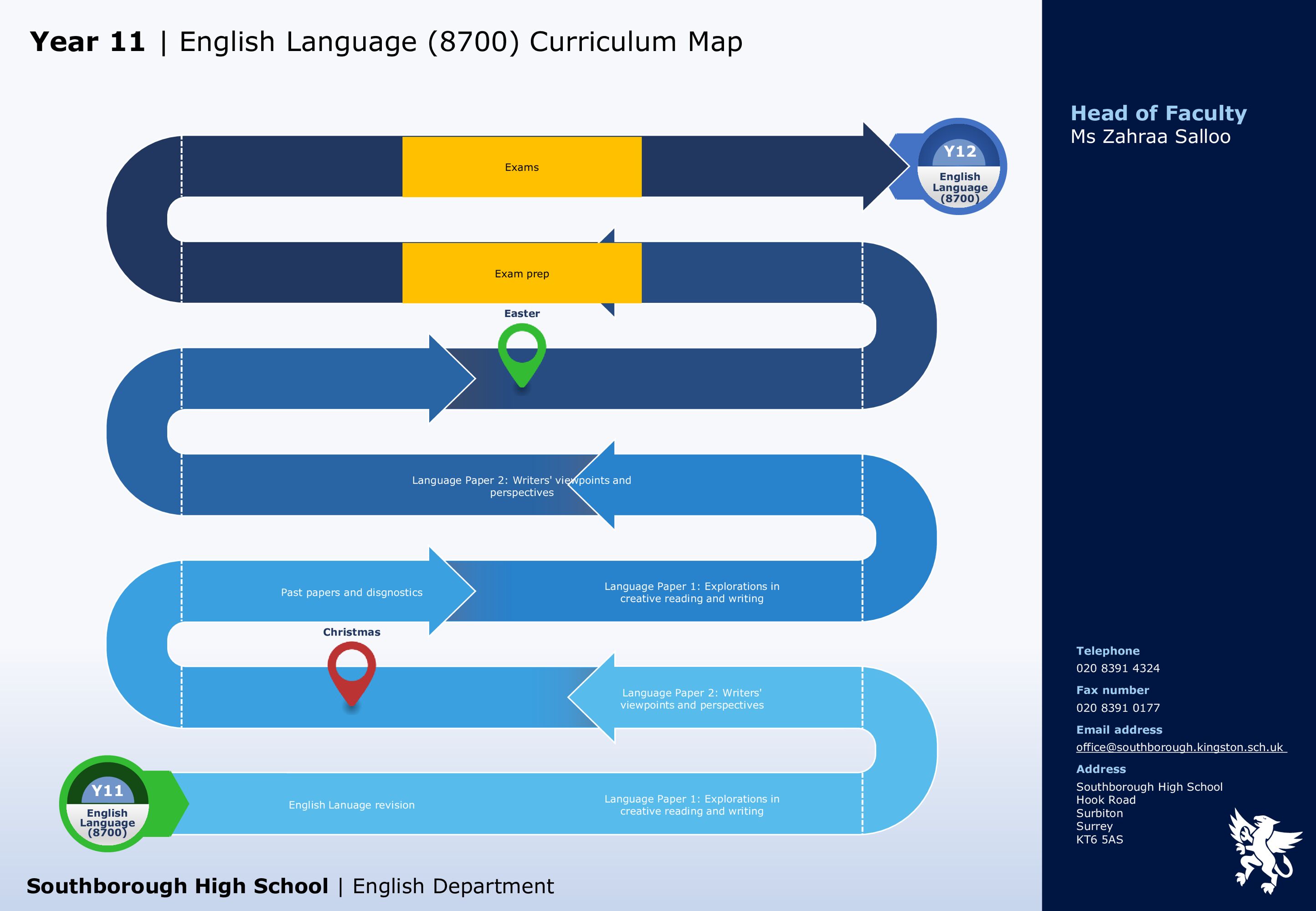
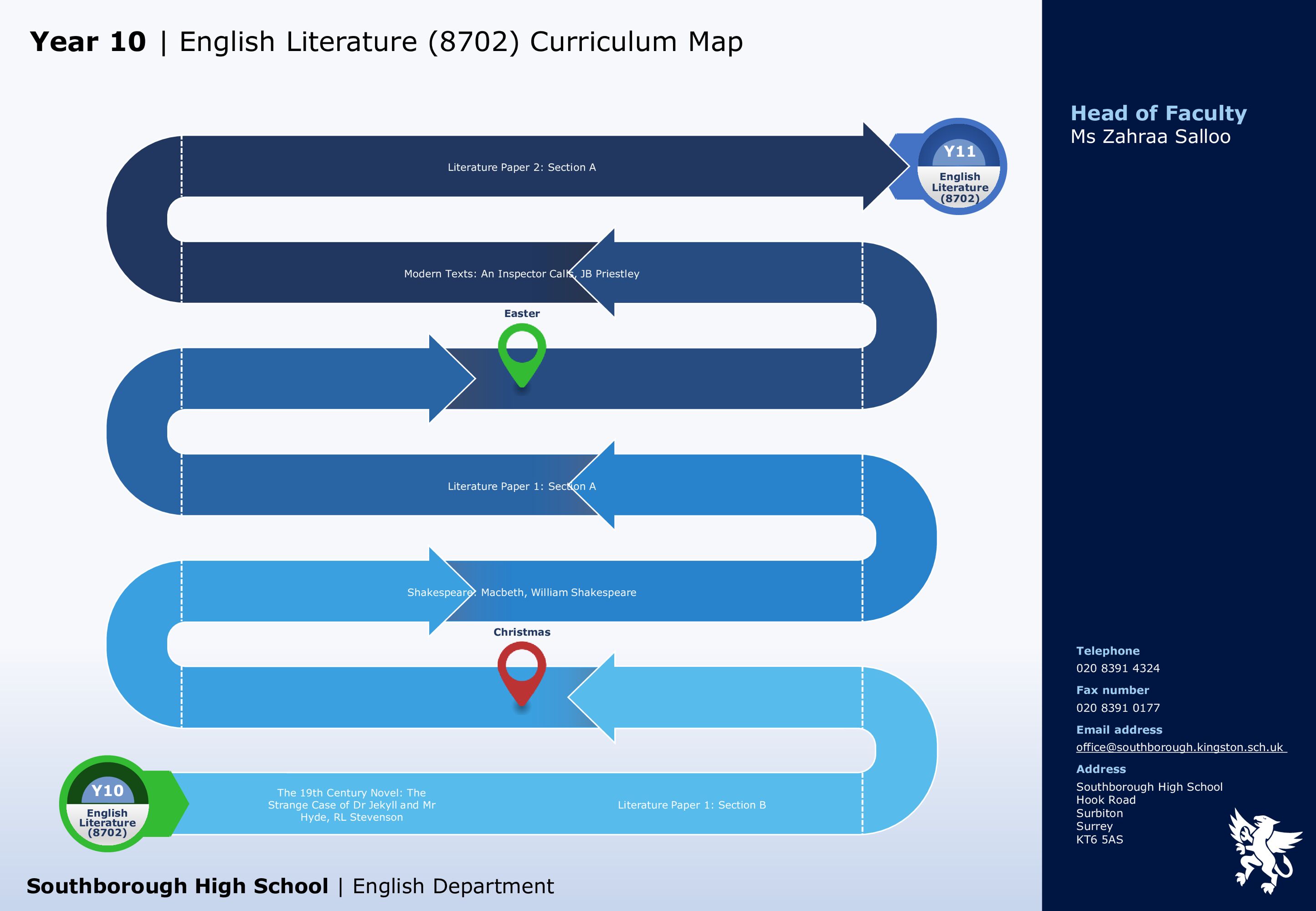
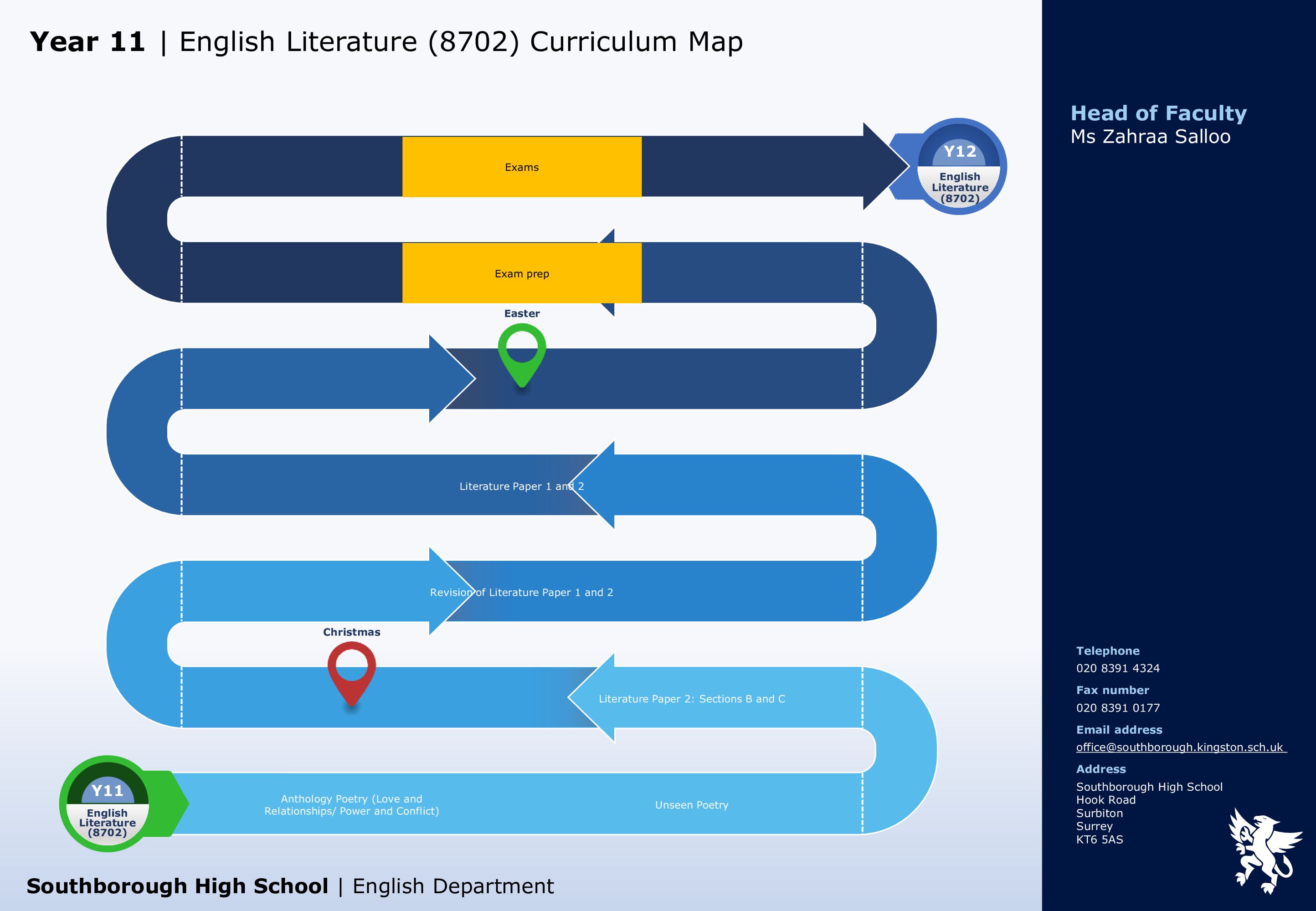
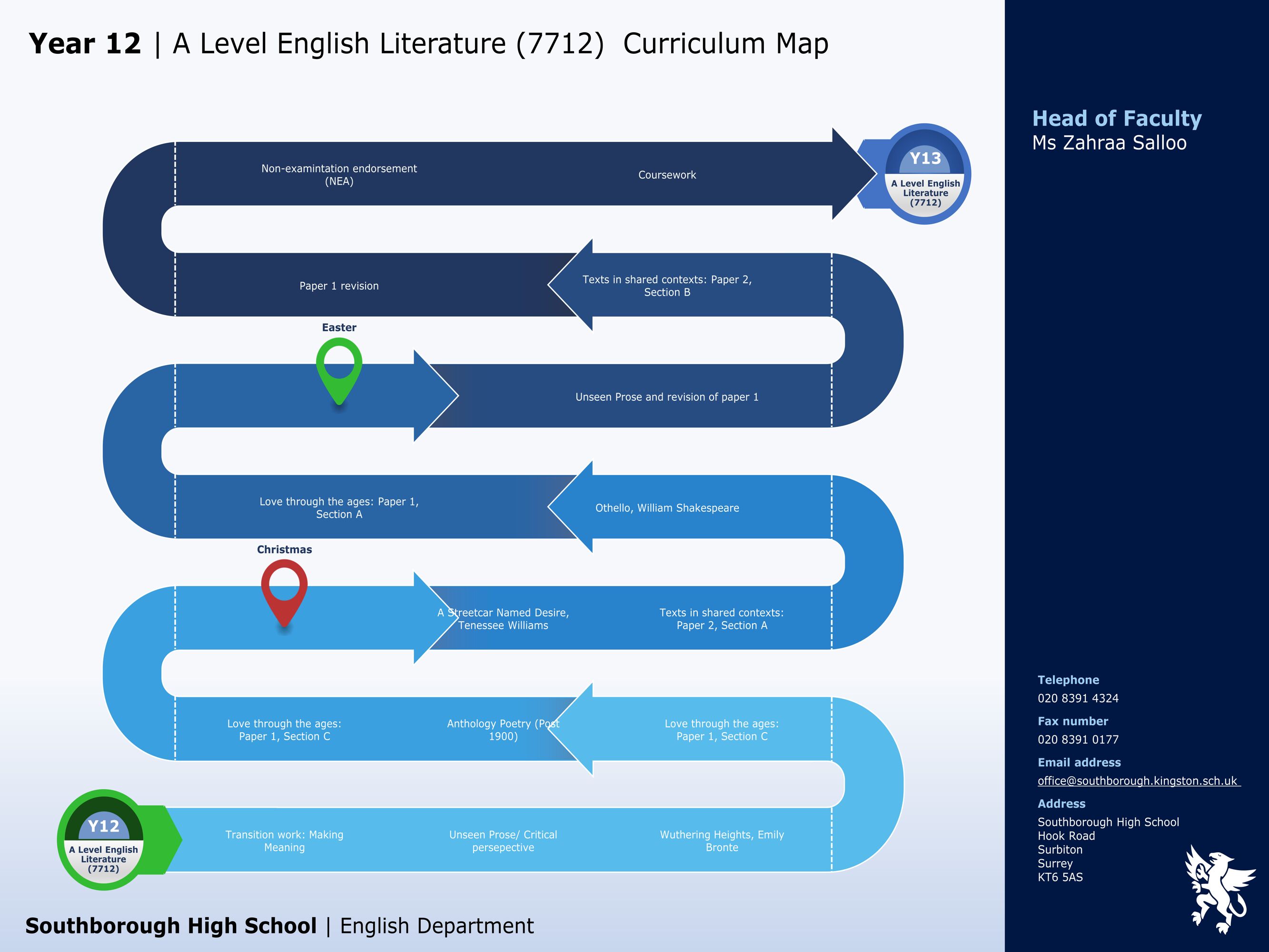
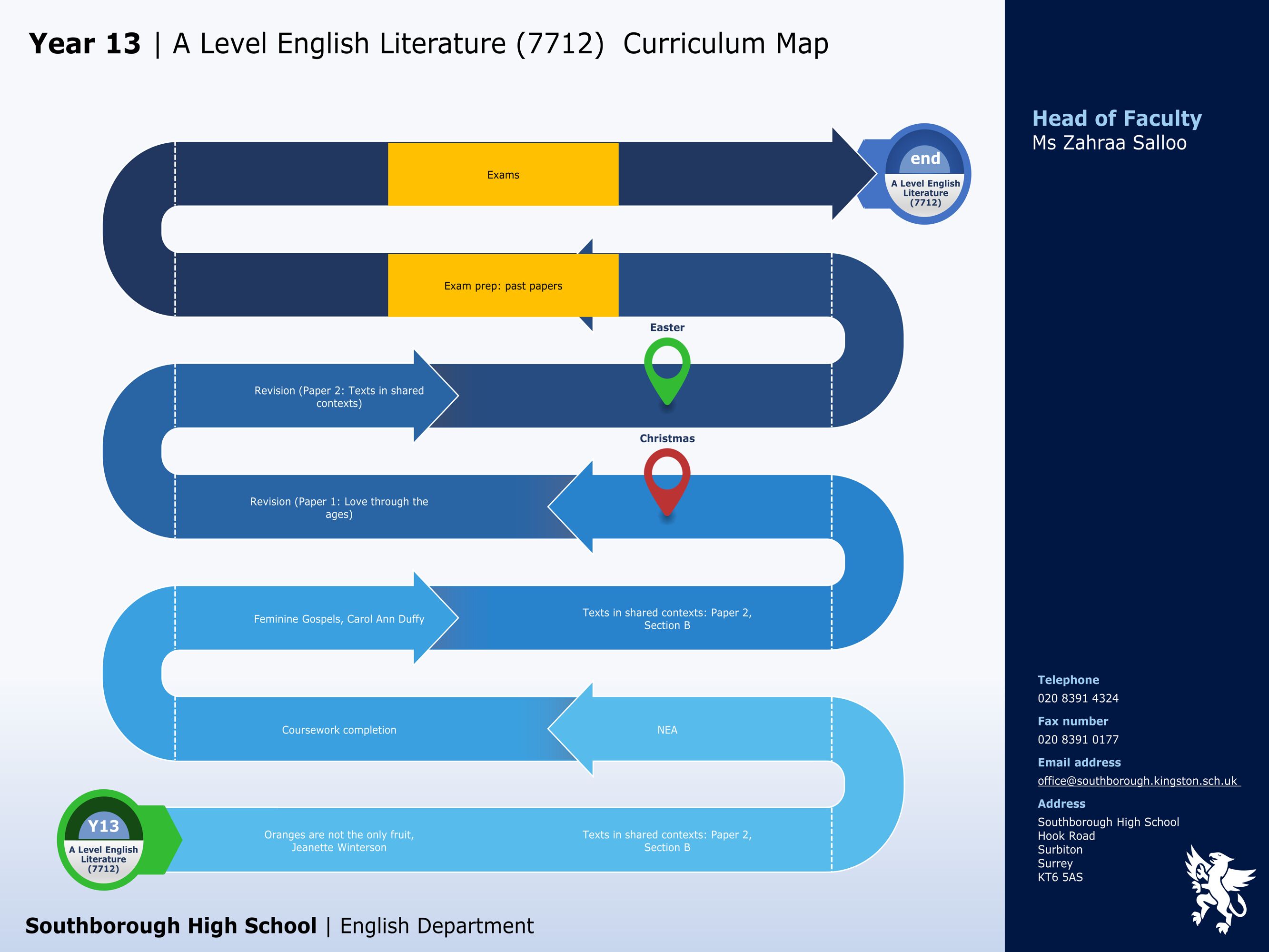
Key Stage 3
At Key Stage 3, students are challenged with language discussion and analysis, remembering techniques and quotes, preparing them for the demands of the new literature focussed GCSE: developing the ability to apply these key reading and writing English concepts is increasingly important. Retaining and utilising key skills effectively is achieved by regularly revisiting key reading, writing and spoken language concepts, ensuring there is adequate extended writing and analysis of reading practice. These skills are taught through a range of approaches deliberately designed to engage boys!
Accelerated Reader
Our students are encouraged, throughout, to be independent readers and one lesson for KS3 is dedicated to Accelerated Reader. Boys are given specific book choices related to their reading ages, which are reviewed to ensure progress is made in reading across the years. There are close links with the school library that monitor this.
Key Stage 4 Courses
The department follows AQA GCSE English Language (8700) and Literature (8702) at Key Stage 4 (worth 2 GCSEs). We believe all our boys can attain and should have access to those GCSEs. Courses are 100% examination, made up of understanding literary and non-literary fiction and non-fiction texts. The Literature course is 100% examination, exploring both 19th century and modern texts, poetry Shakespeare. The GCSEs prepare for A Level English Literature study and a number of other courses in higher education. All potential employers, in whatever chosen career, will be looking for people who can communicate clearly and express themselves appropriately. Good communication skills are vital in all aspects of life.
Key Stage 5 Course
At KS5, those who have not attained GCSE at the required government passing benchmark, continue with this study.
AQA Literature A (7712) is undertaken for A Level. The Literature course is 80% examination, exploring drama, poetry and prose from pre-1900 to post-2000. A Level Literature is an excellent foundation for many undergraduate courses, aside from English based study.
Further information about the A Level course is available from:
